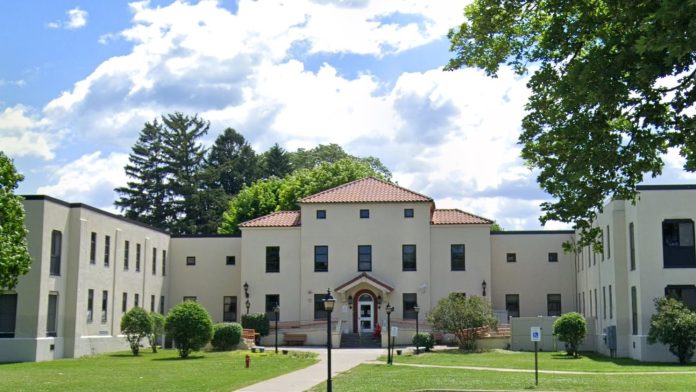John Norris Addiction Treatment Center
1732 South Avenue
Rochester, NY 14620
Rochester, New York
585-461-0410
Get Help Now - 716-795-2943
 Who Answers?
Who Answers?

Amenities

Private Rehab
Private drug rehab provides a comfortable, secure environment that allows you to focus on doing the work to ge...t your life back on track. Benefits include a higher staff-to-client ratio, increased one-on-one time with therapists and healthcare providers, private rooms for clients, and customized forms of therapy.Read More
Addiction Treatment Programs
Adult Program
Alcoholism
Men's Rehab
Opioid Treatment
Women's Rehab
Teen & Adolescent Program
Adult Program
A quality adult program in New York provides a combination of medical, mental, and emotional support to treat the whole individual. Various methods are used to help adults achieve and maintain sobriety.Alcoholism
To address the full range of issues involved in alcohol use disorder, an alcohol rehab in New York often incorporates a variety of treatment methods. Physical activity, nutrition, psychotherapy, and support groups are common aspects of treatment.Men's Rehab
Some men benefit most from men’s rehab in New York. These programs understand the unique challenges that men face when struggling with addiction, and they offer personalized treatment to address these challenges.Opioid Treatment
There are many options available for opioid rehab in New York. Treatment programs include detox, inpatient rehab, outpatient rehab, or intensive outpatient programs (IOPs). Consider the severity of your addiction, how long you’ve been addicted, and personal history to determine which type of program is best for you.Women's Rehab
Men and women face different issues when it comes to addiction and recovery. Women’s rehab in New York offers treatment approaches that address life issues that are specific to women.Teen & Adolescent Program
While at a young adult program in New York, young people can participate in activities and therapy sessions that cater to their age bracket. They can also form relationships with other young adults for mutual support.Levels of Care
1
Detox & MAT
The first step toward a drug-free future is detox in New York. This is the process of slowly and safely riddin...g your body of all addictive substances, while under 24/7 supervision by professionals.Read More
2
Inpatient Rehab
Inpatient drug rehab in New York can last 28 to 90 days, depending on the program. During that time, you’ll ...live at the rehab facility and receive various treatment methods including individual and group therapy.Read More
3
Dual Diagnosis & Mental Health
Mental health disorders that co-occur with substance abuse disorders often cause relapse. For successful recov...ery, both disorders must be treated, with dual diagnosis treatment in New York. Common methods include cognitive-behavioral therapy, medication management, and counseling.Read More
Accreditations

CARF
Insurance
 Medicaid Accepted
Medicaid Accepted
You may be eligible for Medicaid coverage to help pay for alcohol and drug rehab in New York. Medicaid coverag...e may vary, but it may cover the cost of detox, inpatient rehab, and other levels of care.Read More
 Private Insurance
Private Insurance
If you have private insurance, you may be able to use it to help pay for alcohol and drug rehab in New York. T...he amount covered will depend on your policy and whether the treatment center is in-network or out-of-network. You may be left with some costs like a co-payment, or co-insurance. Check with your insurer for more information.Read More
 Self-Pay Options
Self-Pay Options
You have the option to pay for alcohol and drug rehab treatment out-of-pocket in New York, known as self-pay o...r private pay. This gives you control over the cost of your recovery journey and access to all levels of care, including detox, inpatient rehab, and more.Read More
Contact John Norris Addiction Treatment Center



